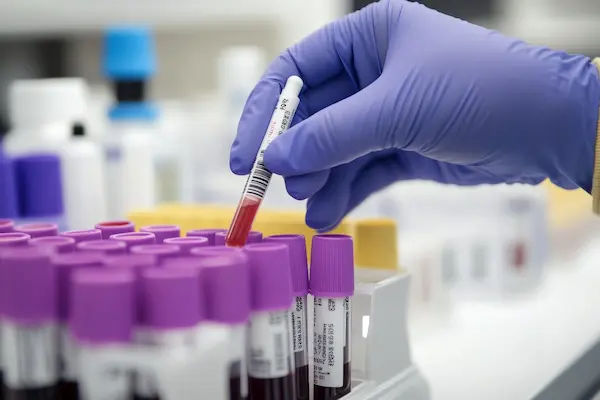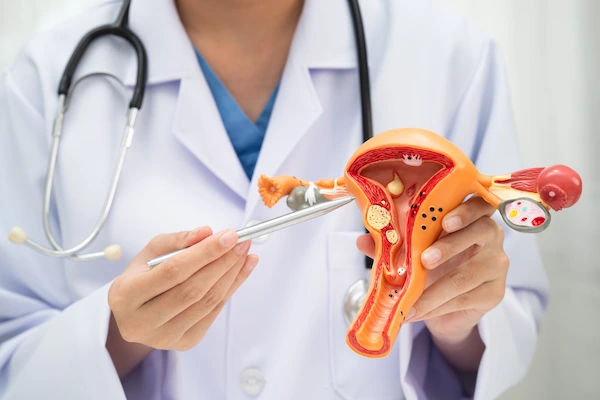New Paradigms in Pancreas Surgery Safer, Smarter Care
Explore the latest advances in pancreas surgery. Learn how minimally invasive techniques, enhanced recovery pathways, and multidisciplinary care are transforming patient outcomes.

Written by Dr. Shaik Abdul Kalam
Reviewed by Dr. D Bhanu Prakash MBBS, AFIH, Advanced certificate in critical care medicine, Fellowship in critical care medicine
Last updated on 13th Jan, 2026
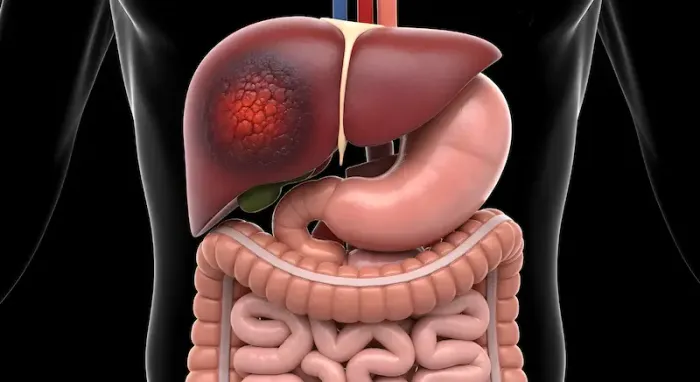
Introduction
Pancreas surgery has long been considered one of the most complex and daunting procedures in medicine. Historically, it was associated with lengthy operations, difficult recoveries, and significant risks. However, the landscape of pancreatic care is undergoing a dramatic and positive transformation.
This article explores the revolutionary paradigms in the surgery of the pancreas, moving from a one-size-fits-all, radical approach to a precision-based, patient-centred model. We will look at how technological advancements such as robotics, evidence-based recovery protocols, and team-based strategies are making these procedures safer, more effective, and less burdensome for patients. Whether you or a loved one is facing a potential procedure, understanding these changing paradigms in pancreas surgery can provide clarity and reassurance.
The Centralisation Paradigm: Why Volume Matters
One of the most significant shifts in modern medicine is the understanding that complex procedures have better outcomes when performed at high-volume centres by specialised teams. This is particularly true for pancreas surgery. Research consistently shows that hospitals and surgeons who perform a higher number of pancreatic resections each year have lower mortality rates, fewer complications such as postoperative pancreatic fistula, and shorter hospital stays.
This improvement is not just due to surgical skill. It reflects the entire ecosystem of care within a high-volume centre, including:
• Experienced anaesthetists who understand the unique demands of long, complex operations
• Specialised ICU teams trained in managing pancreatic surgery recovery
• Interventional radiologists ready to address complications without repeat surgery
• Oncology nurses and nutritionists skilled in the specific needs of pancreatic patients
Choosing a high-volume centre and surgeon is therefore one of the most important decisions patients can make. Consult Top Gastroenterologists
The Minimally Invasive Revolution
Traditional pancreas surgery once required a large open incision, but modern practice is being transformed by minimally invasive techniques such as laparoscopy and robotic surgery.
Laparoscopic Pancreatic Surgery
This approach uses small keyhole incisions and long instruments guided by a camera. It is most commonly applied in distal pancreatectomies, which involve removing the tail of the pancreas.
Robotic-Assisted Pancreatic Surgery
Robotic technology allows surgeons to operate with enhanced precision, flexibility, and a 3D view of the operative field. It is especially valuable in complex procedures such as the Whipple operation, where meticulous reconstruction is required.
Benefits of a Minimally Invasive Approach
The advantages compared with traditional open surgery are clear:
• Less blood loss due to improved visibility and precision
• Reduced postoperative pain from smaller incisions
• Shorter hospital stays and faster return to daily activities
• Lower risk of wound infections
Although not suitable for every case, minimally invasive surgery is now a cornerstone of modern pancreas care.
Rethinking the Knife: Parenchyma-Sparing and Organ-Preserving Techniques
Another major change is the move away from removing large portions of the pancreas wherever possible. Today, surgeons aim to preserve healthy pancreatic tissue and maintain function.
The Evolution of the Whipple Procedure
The classic Whipple procedure (pancreaticoduodenectomy) has been refined over time. Pylorus-preserving variations aim to maintain better stomach function while still effectively removing diseased tissue.
Central Pancreatectomy and Enucleation
For small, low-grade, or benign tumours, surgeons may perform central pancreatectomy (removing only the mid-section) or enucleation (removing just the tumour itself). These approaches protect pancreatic function and reduce long-term complications such as diabetes.
Enhanced Recovery After Surgery (ERAS) Protocols
Preparation and recovery from pancreas surgery have also been reimagined. Enhanced Recovery After Surgery (ERAS) is a structured approach designed to reduce stress on the body and accelerate recovery.
Key Components of an ERAS Pathway
The pathway covers every stage of the surgical journey:
• Prehabilitation with nutrition and exercise to build strength
• Reduced fasting, allowing clear fluids closer to the time of surgery
• Multimodal pain control that limits the need for opioids
• Early mobilisation, encouraging patients to walk soon after surgery
• Early feeding to support gut function and reduce complications
The Impact on Patient Outcomes
Centres adopting ERAS protocols have reported lower complication rates and shorter hospital stays. Patients recover more quickly, both physically and emotionally, with less reliance on pain medication.
The Multidisciplinary Team (MDT) Approach
Pancreas surgery is no longer the responsibility of a single surgeon. It is guided by a multidisciplinary team (MDT), ensuring patients receive well-rounded, personalised care.
Who is on Your Team?
A typical MDT may include:
• Hepatobiliary surgeons
• Medical and radiation oncologists
• Gastroenterologists
• Radiologists and pathologists
• Oncology nurses, nutritionists, and pain specialists
The Patient's Role in the MDT
The patient is central to the team. MDT discussions ensure that treatment plans are tailored, coordinated, and evidence-based, leading to better outcomes and smoother care pathways.
Advanced Diagnostics and Personalised Treatment
Modern surgery is supported by advanced imaging and molecular diagnostics. These tools allow clinicians to identify tumour characteristics, predict treatment response, and select the most suitable surgical approach. This focus on precision is another hallmark of the changing paradigm.
Conclusion: A Hopeful Future for Patients
Pancreas surgery has evolved far beyond its daunting reputation. The adoption of minimally invasive methods, organ-preserving techniques, ERAS protocols, and multidisciplinary care has transformed both safety and patient experience.
What was once a feared operation is now performed with greater confidence, precision, and compassion. If you are facing surgery for a pancreatic condition, seek out a centre that embraces these modern principles. Ask about minimally invasive options, enhanced recovery pathways, and the role of a multidisciplinary team in shaping your care. Consulting a surgical oncologist online with Apollo24|7 is a practical step towards understanding whether these advanced approaches are right for you. Consult Top Gastroenterologists
Consult Top Gastroenterologists

Dr. B Prabhakar
Gastroenterology/gi Medicine Specialist
21 Years • MD, DM (GE)
Hyderguda
Apollo Hospitals Hyderguda, Hyderguda

Dr. Aakash Garg
Gastroenterology/gi Medicine Specialist
12 Years • MBBS, DNB (Medicine), DrNB (Gastroentrology).
Bilaspur
Apollo Hospitals Seepat Road, Bilaspur
(150+ Patients)

Dr Piyush Vishwakarma
Gastroenterology/gi Medicine Specialist
11 Years • MBBS, MD, DrNB,
Delhi
Apollo Hospitals Indraprastha, Delhi
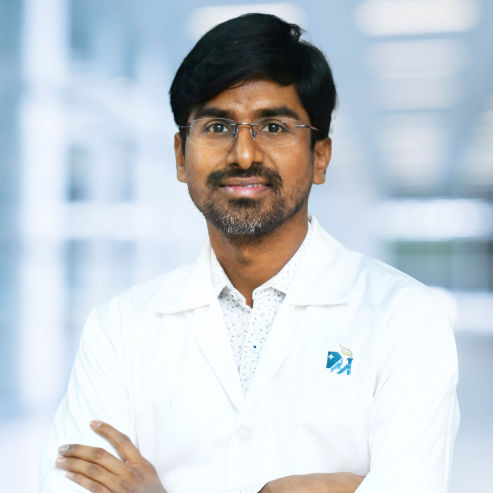
Dr. Lekkala Rajesh
Gastroenterology/gi Medicine Specialist
12 Years • MBBS, DNB Internal Medicine DrNB Medical Gastroenterology and Hepatology | Medical Gastroenterology
Secunderabad
Apollo Hospitals Secunderabad, Secunderabad
(75+ Patients)
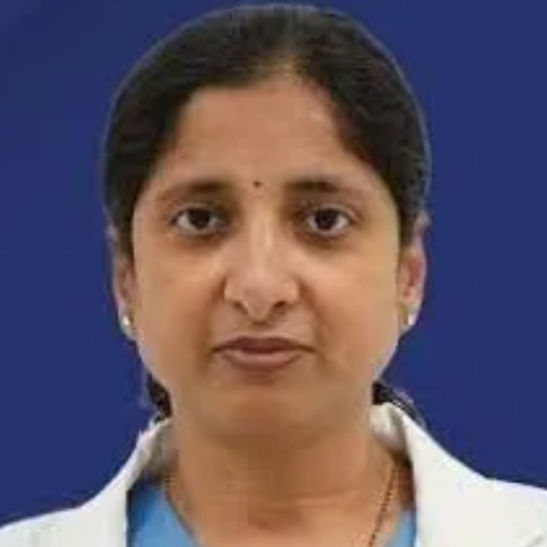
Dr. Bharani Immaneni
Gastroenterology/gi Medicine Specialist
12 Years • MD DM Gastroentrology
Secunderabad
Apollo Hospitals Secunderabad, Secunderabad
(75+ Patients)
Consult Top Gastroenterologists

Dr. B Prabhakar
Gastroenterology/gi Medicine Specialist
21 Years • MD, DM (GE)
Hyderguda
Apollo Hospitals Hyderguda, Hyderguda

Dr. Aakash Garg
Gastroenterology/gi Medicine Specialist
12 Years • MBBS, DNB (Medicine), DrNB (Gastroentrology).
Bilaspur
Apollo Hospitals Seepat Road, Bilaspur
(150+ Patients)

Dr Piyush Vishwakarma
Gastroenterology/gi Medicine Specialist
11 Years • MBBS, MD, DrNB,
Delhi
Apollo Hospitals Indraprastha, Delhi

Dr. Lekkala Rajesh
Gastroenterology/gi Medicine Specialist
12 Years • MBBS, DNB Internal Medicine DrNB Medical Gastroenterology and Hepatology | Medical Gastroenterology
Secunderabad
Apollo Hospitals Secunderabad, Secunderabad
(75+ Patients)

Dr. Bharani Immaneni
Gastroenterology/gi Medicine Specialist
12 Years • MD DM Gastroentrology
Secunderabad
Apollo Hospitals Secunderabad, Secunderabad
(75+ Patients)
More articles from General Medical Consultation
Frequently Asked Questions
Q1. What is the most common type of minimally invasive pancreas surgery?
Laparoscopic surgery is often used for removing the tail of the pancreas. Robotic surgery is increasingly used for complex procedures like the Whipple operation.
Q2. How long does recovery take after a robotic Whipple procedure?
Recovery times vary, but with ERAS protocols, many patients are discharged within a week and return to most normal activities in four to six weeks. Full recovery can take several months.
Q3. Can surgeons preserve part of the pancreas?
Yes. In select cases, procedures such as central pancreatectomy or enucleation remove only diseased tissue, preserving healthy pancreatic function.
Q4. Why is a multidisciplinary team so important?
Because pancreas care involves complex decisions across multiple specialties, an MDT ensures treatment is comprehensive and coordinated.
Q5. What should I ask my surgeon during a consultation?
Questions might include: How many pancreatic procedures do you perform annually? Do you offer minimally invasive options? What is your ERAS protocol? How does your multidisciplinary team operate?

